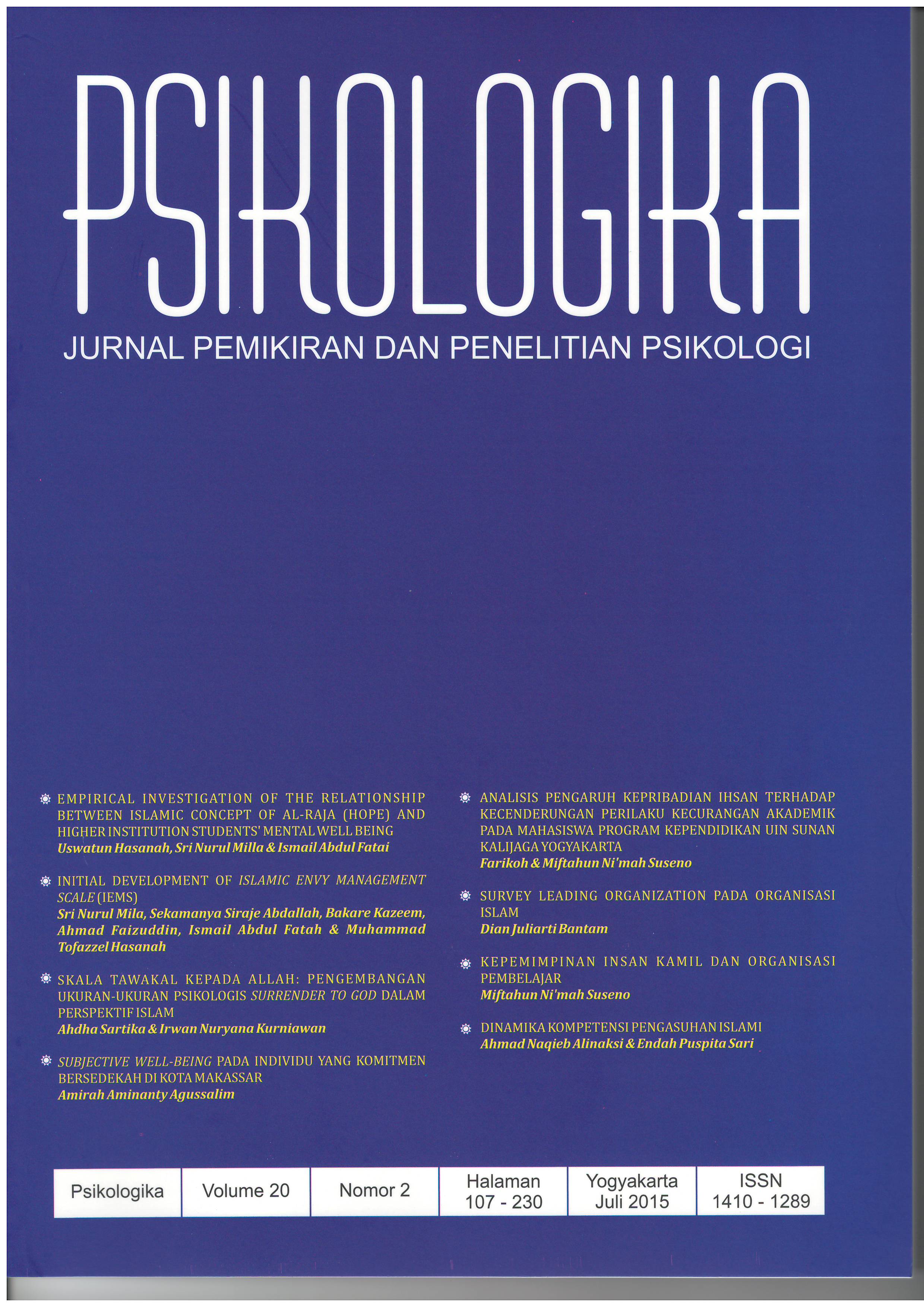Main Article Content
Abstract
Islam discourages the believers from keeping envious feelings in their hearts. In modern psychology, envy is linked with a group of negative mental health outcomes, such as depression, anxiety, and aggressive behaviors. This study is an attempt to develop a scale of envy management based on the teaching of aTGhazali, one of a Muslim scholar known as Hujjat ah Islam, The Proof of Islam. The Benign and Malicious Envy Scale (BeMaS) developed by lange & Crusius (2015) was administered to 200 Muslim students of an Islamic higher learning institution in Malaysia to evaluate their benign and malicious tendencies towards envy. Additionally, the Islamic Envy Management Scale (IEMS) was developed in accordance with al-Ghazali's proposition on how to eliminate envious feelings among Muslim adults and was administered to the sample. Principal Components Analysis yielded two factors, namely knowledge and action, with a total variance extracted of 55.5%. The resultant scale had a Cronbach Alpha of 0.7. The scale had showed a significant positive correlation with the benign envy and a significant negative correlation with malicious envy.
Keywords: envy, Islamic teaching, mental health, PCA.
Article Details
Authors who publish with this journal agree to the following terms:
- Authors retain copyright and grant the journal right of first publication with the work simultaneously licensed under a Creative Commons Attribution-ShareAlike 4.0 International License that allows others to share the work with an acknowledgment of the work's authorship and initial publication in this journal.
- Authors are able to enter into separate, additional contractual arrangements for the non-exclusive distribution of the journal's published version of the work (e.g., post it to an institutional repository or publish it in a book), with an acknowledgment of its initial publication in this journal.
- Authors are permitted and encouraged to post their work online (e.g., in institutional repositories or on their website) prior to and during the submission process, as it can lead to productive exchanges, as well as earlier and greater citation of published work (See The Effect of Open Access).




